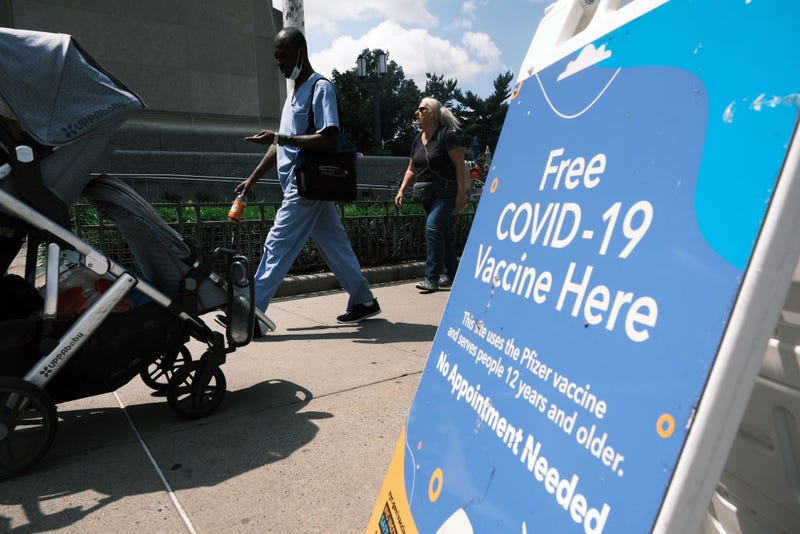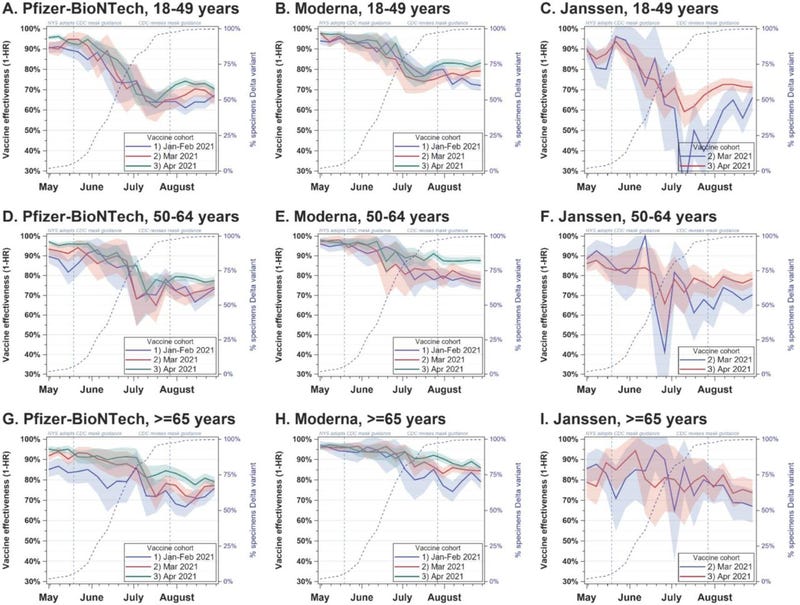
NEW YORK (WBEN) — A summertime uptick in coronavirus cases in New York City was spurred by the reduced use of face masks and the spread of delta variant — not because of waning effectiveness of vaccines, according to a new coronavirus study.

Researchers behind the report, from the state Health Department, said the findings reinforce the efficacy of vaccines and the need for booster shots, particularly among older and vulnerable populations.
"[The study] clearly demonstrates what we've been saying all along — getting a COVID-19 vaccine continues to be the best way out of this pandemic, and the best way for New Yorkers to prevent serious illness and hospitalization,” Health Commissioner Dr. Howard Zucker the report’s senior author.
Despite breakthrough cases, the research showed all three federally approved vaccines continued to work as strong blockades against severe illness. Though the report did show some declines in effectiveness among Pfizer and Moderna recipients 65 years old and older.
The non-peer-reviewed study, published by the Centers for Disease Control and Prevention, reviewed vaccinated New Yorkers' coronavirus figures between January through April 2021 and compared that to new infections and hospitalizations between May 1, 2021, and Aug. 28, 2021 among vaccinated and unvaccinated residents.

Effectiveness against hospitalizations remained steady, holding out at about 86% across all three vaccines for adults between 18 and 64 years old.
But hospitalization effectiveness dropped slightly for those 65 and older during delta’s surge between May and August; Pfizer dropped from 95.0% to 89.2%; Moderna dropped from 97.2% to 94.1% among the elderly.
Effectiveness against hospitalizations for the Johnson & Johnson shot was lower, but remained consistent over that time for that age group, ranging between 85.5%- 82.8%.
Vaccine effectiveness did drop off a bit in preventing new infections. The study broke down declines by age group and vaccine:
—Pfizer-BioNTech: -24.6% for 18-49; -19.1% for 50-64; and-14.1% for 65 and older;
—Moderna: -18.0% for 18-49; -11.6% for 50-64; and - 9.0% for 65 and older;
—Johnson & Johnson: -19.2% for 18-49; -10.8 for 50-64; and -10.9% for 65 years of age and older.
The lead study author, Dr. Eli Rosenberg of the state’s Health Department, said the evidence shows a need for boosters.
"The findings of our study support the need for boosters in older people in particular, and we encourage them to seek out a booster shot from their health care provider, pharmacy or mass vaccination site,” he said in a statement.
He was less concerned about younger adults.
“We saw limited evidence of decline in effectiveness against severe disease for people ages 18 to 64 years old. While we did observe early declines in effectiveness against infections for this age group, this appears to have leveled off when the Delta variant became the predominant strain in New York,” Rosenberg said.
“Together, this suggests that ongoing waning protection may be less of a current concern for adults younger than 65 years," he added.
